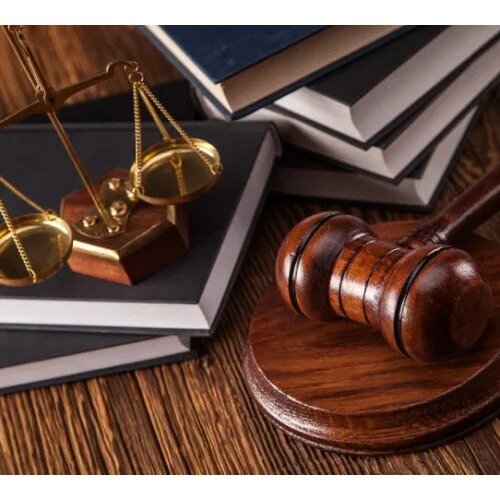Best Elder Law Lawyers in Pakistan
Share your needs with us, get contacted by law firms.
Free. Takes 2 min.
Or refine your search by selecting a city:
List of the best lawyers in Pakistan
Pakistan Elder Law Legal Questions answered by Lawyers
Browse our 1 legal question about Elder Law in Pakistan and read the lawyer answers, or ask your own questions for free.
- proof of legal heir
- I am nominated by my uncle for his property after his death, he does not have any legal heir parents, sister, brothers, children, and wife. i need to get the succession certificate, but how can I prove to the court that there is no legal heir for my uncle now,... Read more →
-
Lawyer answer by SJ Law Experts
Thank you. SJ Law Experts, Islamabad [Advocates, Legal Advisors & Immigration Lawyers].
Read full answer
About Elder Law in Pakistan
Elder Law in Pakistan encompasses a range of legal issues affecting older individuals. This area of law addresses the unique requirements of senior citizens, focusing on aspects such as retirement planning, medical care, guardianship, estate planning, and protection against elder abuse. Given the growing elderly population in Pakistan, the need for legal frameworks catering specifically to the rights and needs of older people is more significant than ever.
Why You May Need a Lawyer
There are several situations where individuals may require legal assistance in the field of Elder Law. These situations could include understanding and navigating the complexities of inheritance laws, setting up and managing a legal guardianship, addressing issues related to elder abuse or neglect, and planning for long-term healthcare needs. Additionally, elder law attorneys can help seniors make informed decisions about retirement benefits and pensions, ensuring they receive what they are entitled to. Seeking legal counsel can also be crucial in instances where there is a need to dispute or contest a will or estate.
Local Laws Overview
In Pakistan, several local laws are pertinent to Elder Law. The Punjab Senior Citizens Act, 2013, is one example, which ensures the protection and welfare of senior citizens in the province. This law provides seniors with fundamental rights, such as the right to live with dignity and access to essential healthcare services. Additionally, the Family Laws Ordinance can be relevant in matters of guardianship and family support for seniors. Pension and retirement laws are also crucial, as they dictate the financial entitlements and rights of older individuals after retirement. Awareness of these local laws is essential for seniors and their caregivers to protect their legal rights and entitlements effectively.
Frequently Asked Questions
What is Elder Law?
Elder Law is a specialized legal field focusing on issues affecting elderly individuals, such as retirement, healthcare, guardianship, and elder abuse protection.
What services do Elder Law attorneys provide?
They assist with estate and retirement planning, addressing elder abuse, setting up guardianships, managing wills and trusts, and ensuring older people receive their entitled benefits.
How can I protect an elderly relative from financial abuse?
Seek a legal advisor to help establish power of attorney and educate them on their rights. It's also essential to regularly monitor their accounts for unusual activities.
What should I do if I suspect elder abuse?
Report your suspicions to local authorities or elder protection services and consult an Elder Law attorney to understand legal actions that can be taken.
Are there laws to protect the healthcare rights of elders?
Yes, laws like the Punjab Senior Citizens Act ensure access to healthcare services and safeguard the dignity and welfare of the elderly.
How can I plan for long-term care of an elderly family member?
Consult an Elder Law attorney for advice on legal, financial, and healthcare planning tailored to the individual's needs and local laws.
What legal considerations are there for drafting a will in Pakistan?
It's crucial to understand the Islamic inheritance laws, legal requirements for the document's validity, and appoint an executor for the estate.
Who qualifies for a guardianship arrangement?
A legal guardianship may be necessary for seniors who cannot make decisions independently due to mental or physical incapacity. Legal advice is recommended to establish such an arrangement.
How are pensions handled under Elder Law?
Pensions are governed by federal and provincial laws that outline eligibility, distribution, and management of retirement benefits. Legal guidance can ensure compliance and proper receipt of benefits.
How do laws in Pakistan address age discrimination?
While there are limited explicit laws addressing age discrimination, general civil rights protections may be applicable. Legal advice may help explore available avenues for recourse.
Additional Resources
For those seeking further assistance, the National Council of Social Welfare and the Ministry of Human Rights are critical governmental bodies in Pakistan. Organizations such as the Pakistan Association of Elder Persons (PAEP) and Senior Citizens' Welfare Organizations provide support and advocacy for elderly rights. Legal Aid Offices and the Human Rights Commission of Pakistan (HRCP) can also guide specific Elder Law issues.
Next Steps
If you believe you or a loved one requires legal assistance concerning Elder Law issues, consider taking the following steps. Begin by gathering all relevant documents and details related to your legal concern. Schedule a consultation with an attorney who specializes in Elder Law to understand your rights and responsibilities better. During your meeting, bring up all your concerns and ask questions to fully comprehend possible legal actions and outcomes. Additionally, leverage available resources and support organizations to stay informed about any changes in legislation or policies affecting elderly citizens in Pakistan.
Lawzana helps you find the best lawyers and law firms in Pakistan through a curated and pre-screened list of qualified legal professionals. Our platform offers rankings and detailed profiles of attorneys and law firms, allowing you to compare based on practice areas, including Elder Law, experience, and client feedback.
Each profile includes a description of the firm's areas of practice, client reviews, team members and partners, year of establishment, spoken languages, office locations, contact information, social media presence, and any published articles or resources. Most firms on our platform speak English and are experienced in both local and international legal matters.
Get a quote from top-rated law firms in Pakistan — quickly, securely, and without unnecessary hassle.
Disclaimer:
The information provided on this page is for general informational purposes only and does not constitute legal advice. While we strive to ensure the accuracy and relevance of the content, legal information may change over time, and interpretations of the law can vary. You should always consult with a qualified legal professional for advice specific to your situation.
We disclaim all liability for actions taken or not taken based on the content of this page. If you believe any information is incorrect or outdated, please contact us, and we will review and update it where appropriate.
Browse elder law law firms by city in Pakistan
Refine your search by selecting a city.

















